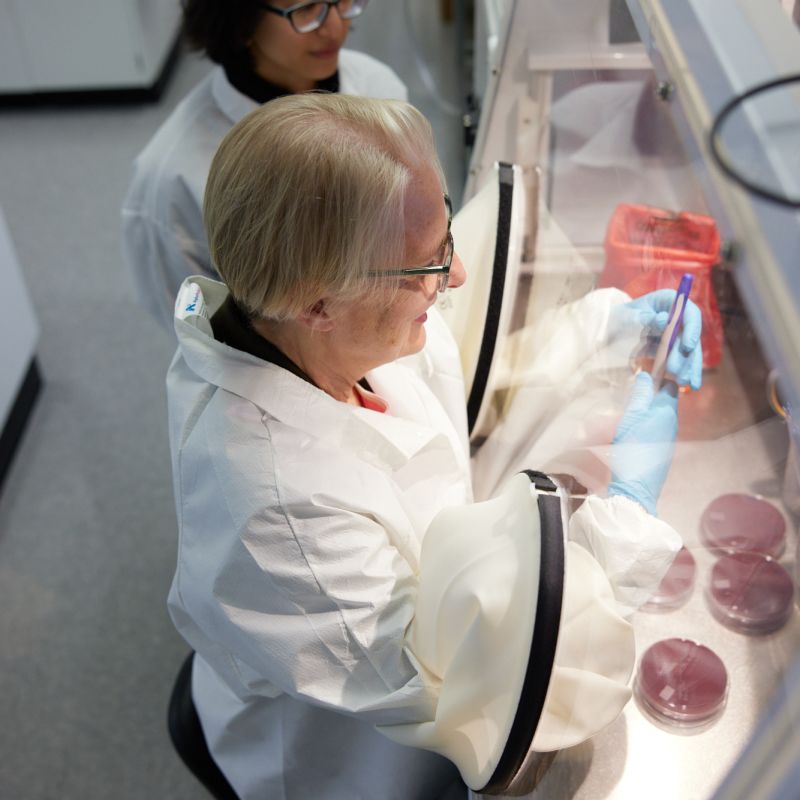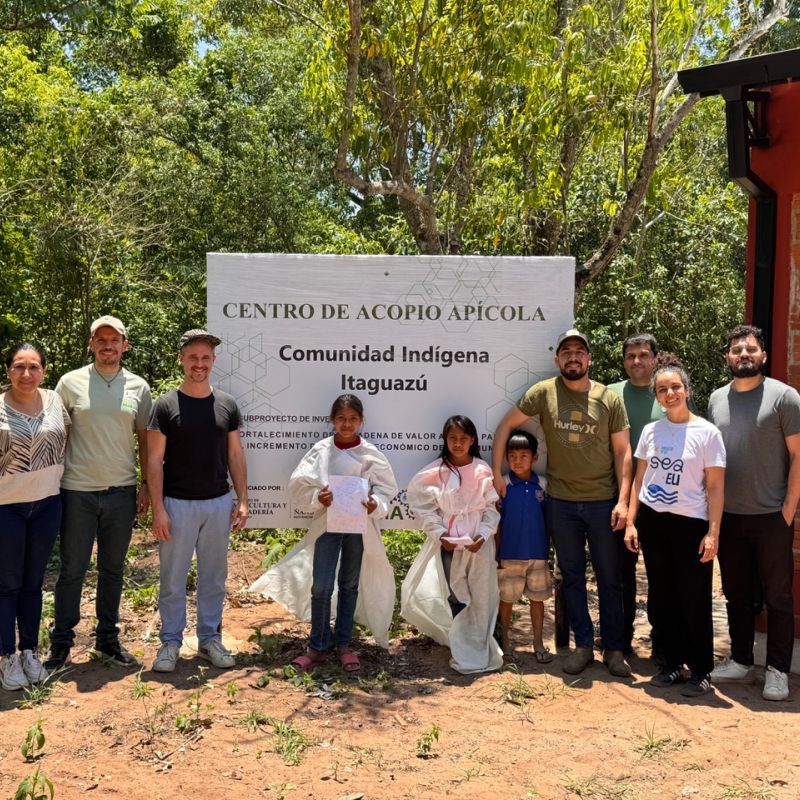OpenBiome Foundation is committed to advancing the science and application of microbiome research that will transform patient care and improve health for all. Our grantmaking program plays a crucial role in this mission by selectively inviting and funding emerging scientific leaders whose research sits at the forefront of microbiome science, leading to improved patient outcomes while advancing our collective understanding of microbiota-directed therapies.
By supporting visionary researchers, we aim to accelerate the pace of discovery and ensure that the future of microbiome science is shaped by diverse, bold, and fresh perspectives.
By invitation only and guided by our trusted partners, we invest in visionary researchers to further accelerate the pace of discovery and ensure that the future of microbiome science is shaped by diverse, bold, and fresh perspectives. Selected grantees are closely aligned with our mission and support work that has direct health implications.

We seek scientific boldness—researchers who push boundaries by pursuing unconventional or innovative directions. As pioneers ourselves, we welcome questions that challenge assumptions, de-risk bold ideas, and build data to unlock new possibilities.

We prioritize emerging leaders—early-career investigators with breakthrough or proof of concept ideas that are unlikely to get NIH funding yet, as well as seasoned scientists pivoting toward bold, mission-aligned research directions.

We insist on scientific rigor and translational impact—strong, well-justified methodologies tailored to the research stage, with clear articulation of potential limitations and a thoughtful approach to ethical considerations.

We champion openness and access—we believe the tools of microbiome research should be representative, shared widely, and built collaboratively. Many of our grants support the development of open-access tools, datasets, protocols, or infrastructure to help democratize microbiome science.


Our Commitment to C. difficile and FMT Innovation
As part of our enduring commitment to patients affected by Clostridioides difficile infection (CDI), we dedicate the majority of our funds to advance research using fecal microbiota transplantations. Thus, grantees work includes:
- Exploring novel uses or delivery methods for FMT
- Advancing biological understanding or safety frameworks
- Addressing barriers to access treatment
- Focusing on patients with unmet needs
This targeted support ensures continued innovation in the field that launched our mission.

A Randomized, Placebo Controlled Trial for FMT in Powdered Formulation for Severe or Fulminant CDI in Hospitalized Adults.
Principal Investigator: Dr. Byron Vaughn, University of Minnesota.
Currently, there are no microbiome-based treatments approved for pediatric patients or individuals with severe or fulminant Clostridioides difficile infection (CDI), a life-threatening condition that may not respond to antibiotics and often leaves surgery as the only option—one that carries high risks. This early-phase, randomized, placebo-controlled study will evaluate the feasibility and potential effectiveness of a new powdered FMT product, MTP-301P, designed to treat acute and severe CDI.

Building a Reference Dataset for Microbiome Dynamics: OpenBiome Stool Collection
Principal Investigator: Dr. Eric Alm, Center for Microbiome Informatics and Therapeutics at MIT
OpenBiome Foundation has built one of the most comprehensive collections of healthy, longitudinal stool samples in the world—a unique resource for advancing microbiome science. In partnership with researchers at MIT, we’re generating open-access datasets that help scientists better understand the natural variation of the human microbiome over time.By sharing this data, we aim to accelerate discovery and provide a strong foundation for the development of microbiome-based diagnostics and therapies.

The Global Microbiome Conservancy (GMbC)
Principal Investigators: Drs. Mathilde Poyet and Mathieu Groussin, Kiel University
Through a network of local collaborations, the GMbC collects and studies fecal microbiome samples from underrepresented populations around the world, generating both 16S and metagenomic sequencing data to build a global microbiome databank.
OpenBiome Foundation is funding and supporting GMbC collaborators and their collection efforts in Ethiopia, Paraguay, Borneo, Iraq, Argentina, and Kazakhstan. These projects aim to better understand how diet, environment, genetics, and lifestyle shape the human microbiome—and, in turn, influence health.
Our Work

Expanding Access
We break down barriers to microbiome therapies, so patients can get the care they need—when and where they need it.

Funding Boldly
We support pioneering scientists and high-impact research that accelerate the future of microbiome therapies.

Building Systems
We create open-access tools, train providers, and support infrastructure that will last long after our work is done.

Collaborating Globally
We partner with local and global leaders to build solutions that are scalable, sustainable, and informed by diverse communities.